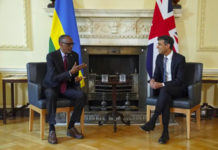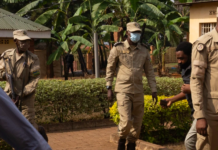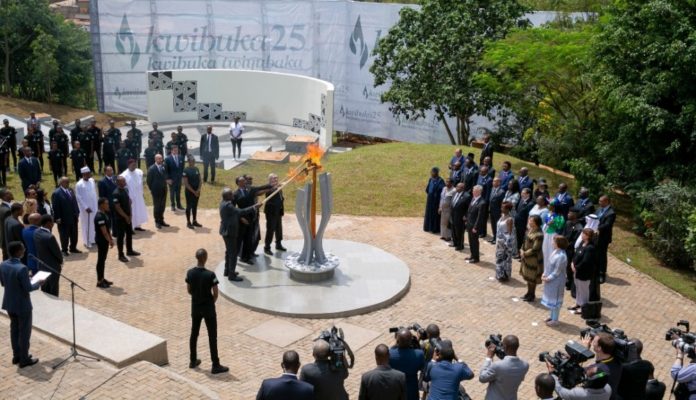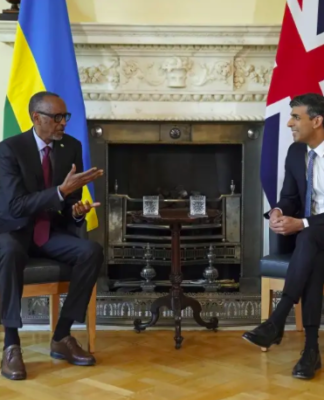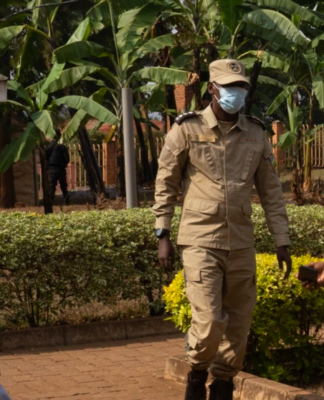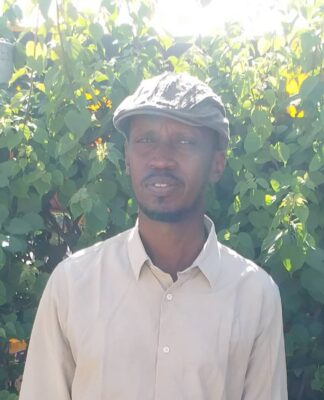By The Rwandan Analyst
Introduction
Lastly, with the arrest and detention of Karasira Aimable, Ibuka as Association of Genocide Survivors officially called upon the public to not support this member and consider him as a criminal as others. Indeed, late Kizito Mihigo ; late Bahati; Idamange Iramugwiza Yvonne; late Rwigara Assinapol; Diane; Adeline; family; Deogratias Mushayidi; Mucyo Jean de Dieu; Kabera Assiel; Kajeguhakwa Valens;Ntashamaje Gerard; Karasira Aimable all but a few are genocide survivors; some of them were assassinated, others were judged, incriminated and condemned or are now judicially prosecuted; others fled the country. The present article intends to analyze the position of Rwandan state vis-à-vis the genocide survivors who dare disapprove its political governance.
1. Facts: from genocide to dictatorship
Details on the individual situation of each one of those genocide survivors may materially require to elaborate voluminous books; instead, there is deemed to summarize facts that pushed genocide survivors to no longer feel at ease under RPF rule as soon as it took office on 19 July 1994. Initially a number of politicians, civil servants, judges and military in place under the old regime either remained in the country or returned from abroad, and indicated their willingness to co-operate with the RPF. The illusion of inclusiveness was soon shattered, however, by the departure into exile of Hutu first, of Tutsi genocide survivors later, and even, eventually, of RPF old hands. From early 1995, Hutu elites became the victims of harassment, imprisonment and even physical elimination. Provincial governors (préfets), local mayors, head teachers, clerics and judges were killed in increasing numbers. In most cases, the responsibility of the Rwandan Patriotic Army (RPA, which had become the national army) was well documented. The first watershed came in August 1995, when Prime Minister Faustin Twagiramungu, Interior Minister Seth Sendashonga (one of the rare RPF Hutu) and Justice Minister Alphonse Nkubito resigned. The first two went into exile, while Nkubito stayed and died in early 1997. The many who left in this first wave included government ministers, senior judges, high-ranking civil servants, diplomats, army officers, journalists, leaders of civil society and even players in the national soccer team. As soon as they were out of the country, they made allegations of concentration and abuse of power, outrages by the army and intelligence services, massive violations of human rights, insecurity and intimidation, discrimination against the Hutu and even against Tutsi genocide survivors. A second wave of departures came in early 2000, in part against the background of increasing tensions between Tutsi returnees, those from Uganda in particular, and genocide survivors. The latter felt that they were becoming second-rate citizens who had been sacrificed by the RPF, which was suspected of having been interested in military victory rather than in saving them. On 6 January 2000, the Speaker of the National Assembly, Tutsi genocide survivor, Joseph Sebarenzi, suddenly resigned under pressure from groups within the RPF who were under parliamentary scrutiny. Fearing for his life, he fled to Uganda and later settled in North America. The Sebarenzi affair was hardly over when Prime Minister Pierre Célestin Rwigema announced his resignation on 28 February; he sought asylum in the United States. Worse was to come less than a month later. On 23 March, President Pasteur Bizimungu resigned ‘for personal reasons’. Accusations were immediately levelled against him: Bizimungu was said to have committed tax fraud, illegally dispossessed farmers, and opposed parliamentary inquiries into corruption for fear of being investigated himself. Although Uganda offered him political asylum, Bizimungu remained in the country; he was arrested a year later and is still in prison. The departures of the Speaker, the prime minister and the head of state within three months were a strong indication that the regime was facing a profound political crisis. Although the situation was, of course, very different, the tension recalled that which prevailed in early 1994 during the months preceding the genocide. Sebarenzi summed up this feeling in an interview: ‘The situation is becoming uncontrollable, there are deep divisions today particularly among Tutsi and these tendencies could lead to a catastrophe . . . . There are many similarities with the period which preceded the 1994 genocide. Indeed, the regime was increasingly challenged from within. At the beginning of 2001, the directors of the newspaper Rwanda Newsline, who used to be close to the RPF, were threatened after the publication of articles criticizing the government, in particular concerning the RPA’s involvement in the Congo. They wrote that they were accused of being in the pay of ‘negative forces’ (‘a term loosely coined by the RPF by which it terrorizes all its critics or opponents into silence’).The editorial staff of Imboni, another newspaper considered close to the RPF, left Rwanda for Brussels from where they published Imboni in Exile. In its first editorial, the staff sarcastically ‘apologized’ for ‘having publicly expressed our indignation at the spirit of sycophancy, the deliberate process of impoverishment of society and public opinion to vassaldom’. Even a journalist from the governmental press was forced to go into exile; on 2 September 2000, Valens Kwitegetse of the newspaper Imvaho Nshya sought asylum in Uganda. High-ranking RPF officials and RPA officers followed suit: MPs Evariste Sissi and Deus Kagiraneza (who was also an officer in the RPA and a DMI cadre) left for Uganda and Belgium respectively; Bosco Rutagengwa, the founder of the genocide survivors’ organization Ibuka, found asylum in the United States; RPA Majors Furuma, Mupende, Ntashamaje and Kwikiriza left for Uganda, Belgium or Canada; the banker and former MP Valens Kajeguhakwa, an erstwhile funder of the RPF, fled as well. In August 2001 RPA Chief of Staff General Kayumba Nyamwasa went on ‘study leave’ in the UK, after a violent verbal dispute with Kagame against the background of a malaise in the army around the operations in the DRC. On 12 April 2001 the editorial of Rwanda Newsline interpreted the ‘disappearance’ on 4 April of retired major Alex Ruzindana as ‘a possible attempt to discourage new defections’. Even RPF members abroad were disillusioned enough to quit. At the beginning of September 2000, the leadership of the RPF in United States (including its chairman, Alexandre Kimenyi, and vice-chairman, Augustin Kamongi) resigned from the party. These departures of Tutsi, many of them active RPF members, showed the extent of discontent with a regime growing more authoritarian by the day. In July 1999, the ‘transitional period’ was extended by four years to 20 July 2003. Marie-France Cros pointed out that ‘we can thus say, to speak frankly, that the RPF has decided to remain in power for four more years and that those who are not members of the RPF who have governmental posts have submitted to its decision – as usual’. Three years later the International Crisis Group summarized relations between the RPF and the other political parties as follows: ‘. . . the political parties that exist today in Rwanda are only tolerated if they agree not to question the definition of political life drawn up by the RPF.
2. Analysis
From the synthetized facts above, the following observations among many others deserve to be made as far as the extent of relationships between the RPF regime and the genocide survivors are concerned.
1) RPF as liberator of Tutsi under oppression
When the RPF invaded the Habyarimana regime, all internal Tutsi felt their pain alleviated because they were expecting a political regime headed by people of their ethnic. This was noticeable when exchanging with them and a series of families sent their young boys to join the rebellion; this is the case of major Ntashamaje Gerard who was a lawyer at Bralirwa and whose father Antoine Ntashamaje had been minister of institutional relationships and president of the Conseil d’Etat in the judiciary of the second republic. This act of sending their children to reinforce the rebels was denounced by Mugesera Leon in his famous speech and they paid by their life during the genocide of 1994.
2) RPF as a cynic murder
After the liberation, genocide survivors were exalted but this excitation will not last because the real face of the new master of the country will be unveiled very soon. When killing the clergymen who had fled at Gakurazo, the RPA soldiers did not worry about Tutsi who were among them; thus were indistinctly assassinated Tutsi like Monsignor Ruzindana Joseph bishop of Byumba diocese; Monsignor Gasabwoya Innocent of Archidiocese of Kigali; Monsignor Jean Marie Rwabirinda who was general vicar of Kabgayi Diocese; Father Muligo Francois Xavier head of the cathedral parish of Kabgayi; Father Mutabazi Dennis; Father Gahonzire Fidel priest of Kabgayi diocese; Brother Nsinga Jean Baptist, General Superior Josephits; Vivens,young brother of bishop Kalibushi of Nyundo diocese; the young boy Sheja Richard and so on. Besides, soldiers were disclosing that they were the ones who shot down the president’s plane triggering the death of a million of human lives; fact which was denounced by Deo Mushaidi who is undergoing life imprisonment for that.
3) RPF as a corrupt regime
In the beginning, Tutsi were expecting from the new regime attracting posts but with time only those who came from Uganda were considered. Later on, even coming from there was no longer taken into account. Instead, it is now cause of exclusion since the dissent of politicians and former officers who fled the country and others now jailed. In this context, from now on regardless of ethnic origin or of where applicants came from, everybody is jobless and none has chance to get the advertised posit given that apart from some exceptional recommendations often driven by nepotism, only are retained people who paid a required amount to a discrete commission agent the latter transferring the sum to the recruiters or girls and women who had sex with the bosses.
4) RPF fear of dissent from genocide survivors
The various violence exercised against genocide survivors risks to awaken them and it may raise up an additional opposition against the regime. Ibuka notice reflects just the fear felt by the RPF especially as Karasira Aimable thanks to his blog had drawn the attention of most of Rwandans in general and Tutsi genocide survivors in particular. In the same line, they tend to demonize Jean Paul Samputu avoiding that his voice reaches a number of conscious genocide survivors who unexpectedly may lose their trust in this bloodthirsty power.
Conclusion
The Kigali regime is ruled by the principle win/win so that genocide survivors have no role to play in such a rapacious governance. Even the FARG fund which was instituted to assist them will no longer assist their schooling children while they still suffer from effects of genocide. Advocacy exercised to the higher authorities was rejected and there is wondered the fate of those children. Those from Hutu ethnic once benefit from MINALOC assistance resigned and those whose parents cannot afford tuition became street delinquents.

